Hope Can Come From Our Broken Stories: Alice Marie Johnson & Christina Zorich
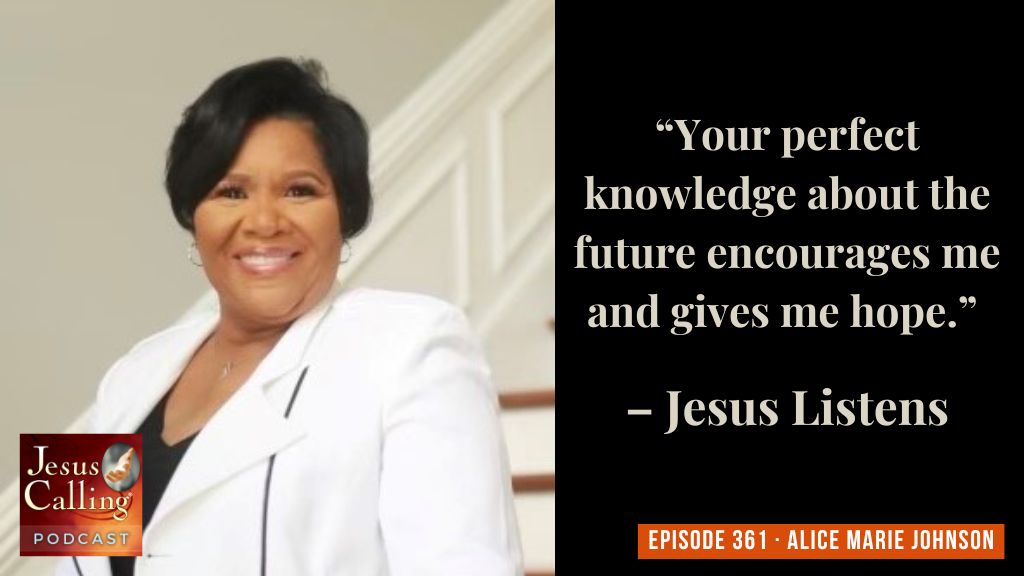
Alice Marie Johnson: Sometimes the answer may not come when you want it to come, but keep praying and keep believing and keep hoping. And I promise you, God, who has promised to never leave you nor forsake you, the same God who was with me and who is with me now, He is faithful. He is faithful to hear your prayers.
Hope Can Come From Our Broken Stories: Alice Marie Johnson & Christina Zorich – Episode #361
Narrator: Welcome to the Jesus Calling Podcast. Sometimes the people we least expect to make a difference in the world are the ones that show up in ways we never thought would have been possible, and are used by God in big ways to draw others to Him.
Alice Marie Johnson had been sentenced to life in federal prison, but she didn’t let it define her. She consistently clung to her faith and then became a minister to other prisoners—despite the tragic circumstances—and she is now an active criminal justice reform advocate. While following anti-human traffickers in Southeast Asia to film a documentary, Christina Zorich witnessed the crippling heartache victims faced, and saw how God can bring hope and healing to anyone, anywhere.
Let’s start with Alice’s story.
Alice: I’m Alice Marie Johnson. I’m a criminal justice reform advocate, author, and former prisoner.
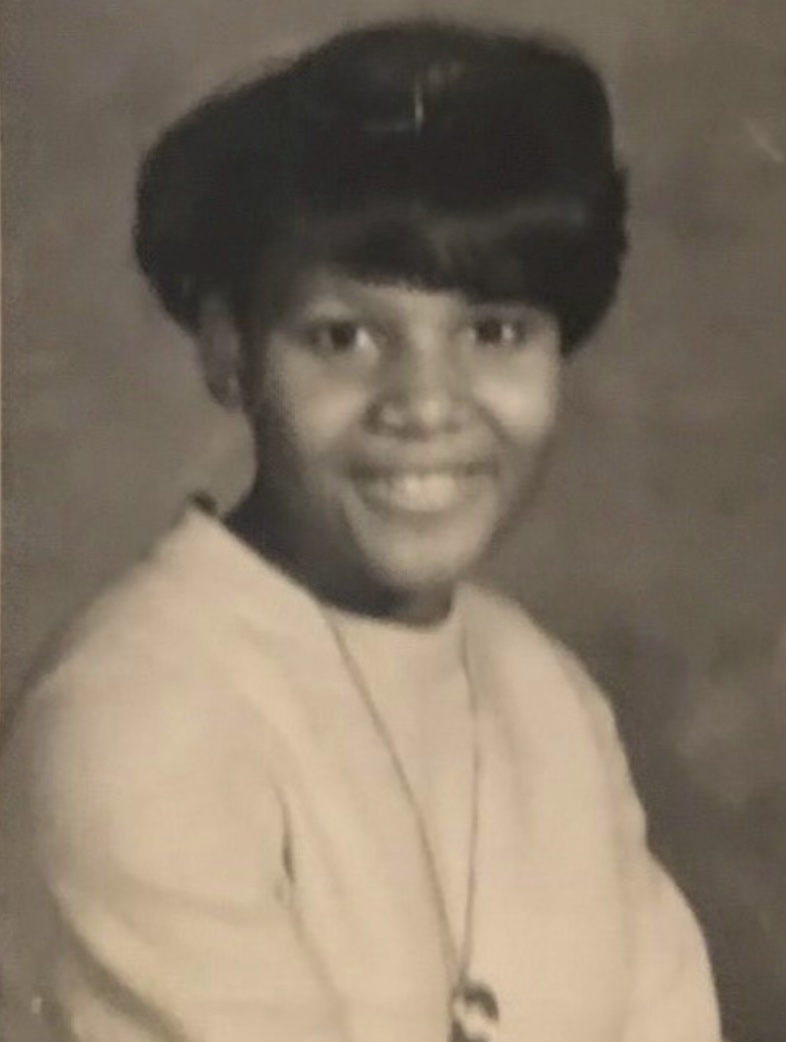
I grew up in a small town called Olive Branch, Mississippi. Both my parents were strong Christians. There were nine of us. I’m number six of my siblings, eight girls and one boy. I had the experience of growing up in a black community, a very Christian community, but my mother and my father, they taught us things that would carry me through life. One of the lessons that they taught us was not to be judgmental, but to accept people as who they are. Because we knew what it felt like to be looked at and judged by the color of our skin.
At the age of fourteen, even though I had loved the church all of my life, I became—I won’t say disenchanted, but during those times it was going into the late sixties, and women’s liberation had hit the scene, and I wanted to be a part of everything that was going on. And I became very disenchanted with the church and I walked away.
I’ll never forget the day that it happened. It was during revival and it was like I went into this bubble and I started seeing things that I just didn’t like. I stood up in church and I said, “There’s more to God than this.” Because it seemed like everyone was just going through motions. I walked out of the church and that was not a good idea for me to do, because my mother came outside and dragged me back into the church. But inside I had really, in my heart, left the church. I went straight into the world. Even though I was still going to church, my heart was no longer in it.
Alice Experiences Extreme Brokenness
After nineteen years of marriage, a very tumultuous marriage, me and my husband were divorced. And even though he had not been the best husband, just the finality of being divorced, it was shocking for me. Even though I expected it, I knew it was coming. I still felt devastated.
After my divorce, I met someone who was a gambler and I started gambling right along with him. And before I knew it, I had a gambling addiction. Not even knowing what a gambling addiction was, I just knew that I was going further in and deeper down. And it was that gambling addiction that would cost me my job. Literally, my life started spiraling out of control. Bills were coming in. I didn’t even know what I was going to do. Lights were being turned off. I cannot even recognize that person because I never ever in my life have been criminally minded.
An offer came to me to be a telephone mule, [where] you pass the messages. My role was if they called me, to pass the message on. I never proffered any drug deals or sold drugs, but I had the telephone records. The first time I got $1,000, it was enough to put food on my table and pay utility bills. And in the midst of this, as I’m ready to walk away from this, my youngest son is killed on his scooter in our neighborhood.
He was twelve, and my fourteen year old son was the driver. When I think back on that time, it’s like I was in a zombie state. I don’t even have insurance to bury my child. And I’m doing the thing I’m doing again, trying to even make money for that. I’m back as a telephone mule again, and then right after that—it wasn’t long after that—the whole thing came tumbling down around us. Someone was arrested with drugs, and he had my phone number in his pocket because that was my role. I didn’t even know him. And they came and they arrested me.
A Life Changing Sentence
They offered me three years if I would take a plea. And my family had an attorney, and my attorney advised me not to take the plea because he said, “You don’t have any money. You don’t have any drugs. You don’t have any money.” But I didn’t know about conspiracy. So with his advice, I went to trial. So after a six week trial, I was found guilty of attempted possession, because there really weren’t drugs in my case. There was no violence, there were no drugs. It was testimony, but it was also a conspiracy.
Not knowing about the legal system and how conspiracy worked, I’m still thinking that even though I was found guilty of attempted possession, that I’m going to get the three years and at the most maybe five. So I had no idea what kind of time I was looking at. So on the day that I was to go back to court for sentencing, they realized that they had not allowed me to look at what the possible sentence was, so it had to be reset. So when I was given the pre-sentence report, which had the recommendation of a sentence, I nearly fell on the floor when I saw that it was suggesting that I receive a life sentence. I didn’t even believe that was possible. I didn’t believe it was true.
So that morning when I was headed to my sentencing, I felt this lightness. And even under my breath I was just praying the Scripture saying, “Yea, though I walk through the valley of the shadow of death, I will fear no evil for you are with me.” [Psalm 23:4]
When she said life plus twenty-five years is my sentence, I knew standing there—I knew that the Lord was with me, because I had peace even standing there that I can’t even explain to this day how I could be calm hearing that sentence, that executed sentence of death being pronounced over me.
“I knew that the Lord was with me, because I had peace even standing there [in the courtroom] that I can’t even explain to this day how I could be calm hearing that sentence, that executed sentence of death being pronounced over me.” – Alice Marie Johnson
When I was let out of the courtroom to begin my journey into prison, they took me back to the jail cell as they prepared to ship me to a federal prison. I fell down on my knees and I prayed. And I asked the Lord, “Please show me my purpose in this. Show me what you have for me in this. There’s got to be more than this. If You could use me in prison, use me wherever I am, Lord. Let my life stand for something.” And I got peace, right there on my knees in that jail cell.
“I asked the Lord, ‘Please show me my purpose in this. Show me what you have for me in this. There’s got to be more than this. If You could use me in prison, use me wherever I am, Lord. Let my life stand for something.’” – Alice Marie Johnson
My prayer was not, “Get me out of jail, Lord, and I’ll do these things if You just set me free.” That was not my prayer. My prayer was, “Lord, give me more understanding. I want to know You more.” I became hungry for His Word, and that began my relationship.
Alice Sheds Light in a Dark Place
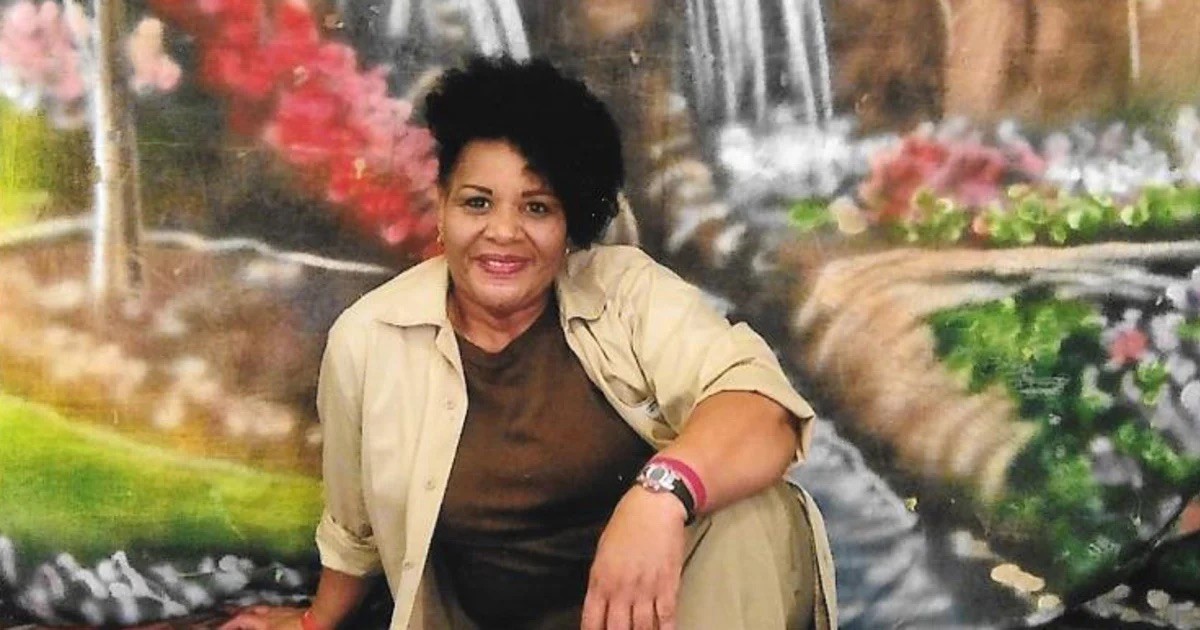
I started teaching His Word. I started holding Bible studies, and people started coming to me, seeking me out for prayer. People would always find me in the chapel, either working in the chapel, or volunteering in the chapel.
It talks in the Bible about the light that shines into darkness [John 1:5]. And I really felt that if I could be a light in this darkness, maybe that was my purpose that God will use me for. I never said to anyone that God put me here. It was my choices that put me there, even though the sentence itself was extreme and I felt [it was] unjust. I still put myself in a position where I could receive any kind of a sentence.
So I was doing ministry work because I know that we don’t need a title, all of us have been called to be ministers of the Gospel of Jesus Christ.
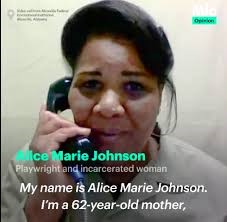
The first time that my voice got out was on a radiothon. They wanted a prisoner to be on this criminal justice and clemency radiothon, and I was selected. And then I started speaking at different universities, I spoke at Honors College, Yale University, University of Washington in Seattle. Google was sponsoring some of those things, so I started speaking on Google and YouTube platforms. Clemency Project 2014 started while I had already begun and oh, Lord, I was left behind. I was not granted clemency.
I knew that the Lord was not going to leave me there, because in order for something to be resurrected, it has to die. And that dream of getting clemency had died. And that’s when the Lord took over.
God Saves Alice
I did a video op-ed, that was the last thing I did. And it would be that video op-ed that would go viral. I didn’t even know what viral meant. While I was in prison, the Internet was created. So I knew nothing about Internet terms.
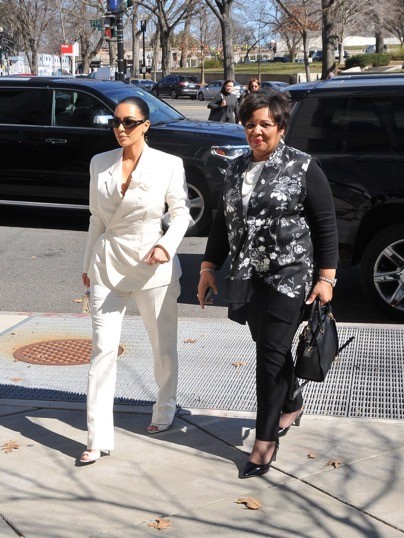
On the second day, someone who Kim Kardashian follows, I guess they retweeted it. She said that she had not been on Twitter for several days, and as soon as she signed into Twitter, my story with my face popped up. She tweeted out after listening to my story, “This is so unfair.”
I was going into my twenty-first year of prison. I didn’t even know who Kim Kardashian was. My daughter had to tell me who she was, because when I was contacted by her attorney, Shawn Holley, she didn’t tell me who it was who wanted to help me.
Kim Kardashian contacted Ivanka Trump, who showed my case to her husband, Jared Kushner. They brought in new lawyers and they call themselves Team Alice. And Kim began trying to get an audience with President Trump. It would take her seven months to get that audience. And she got that audience on my birthday, which in itself was a miracle because her other appointment had been canceled and it seemed like a sign to all of us that she was going on my birthday. Seven days later, the world would watch as I ran across that street into freedom.
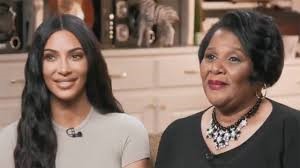
It would be Kim who would tell me that I could go home. As long as there’s breath in my body, I will never, ever forget what that felt like. I was screaming and jumping and praising God because this weight had finally lifted up off my shoulders. It seemed like I was defying gravity. I was shouting and praising God so much. And when they called my name an hour and a half later to report to R&D [Receiving & Discharge], it was this big, loud cheer that went up because they locked all the women in their cells. And when I walked down those stairs, every woman—they were in their windows, beating on the windows, crying and saying, “We love you, Miss Alice, please don’t forget about us.” And when I made that motion, pulling my heart out and throwing it to them, it literally sounded like an earthquake. There was stomping. And at that moment, the way that God says how He’s tattooed us, He knows our names, He’s tattooed us, I feel like I was tattooed not just on the palm of His hands, but on His heart, and those women were tattooed on my heart. I could never forget them. I could never forget that feeling of walking out of that prison and running across the street into the arms of my family.
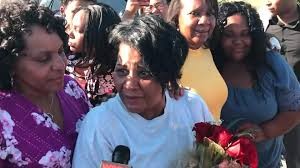
And I know that it was a sovereign hand of God. There is no way that God could bring two of the most well-known people in the world together on my behalf, for someone to see me as a human being worth a second chance, worth redemption, I know that it was God.
“I know that it was a sovereign hand of God. For someone to see me as a human being worth a second chance, worth redemption, I know that it was God.” – Alice Marie Johnson
This prayer is from Jesus Listens. It’s from the March 11th prayer:
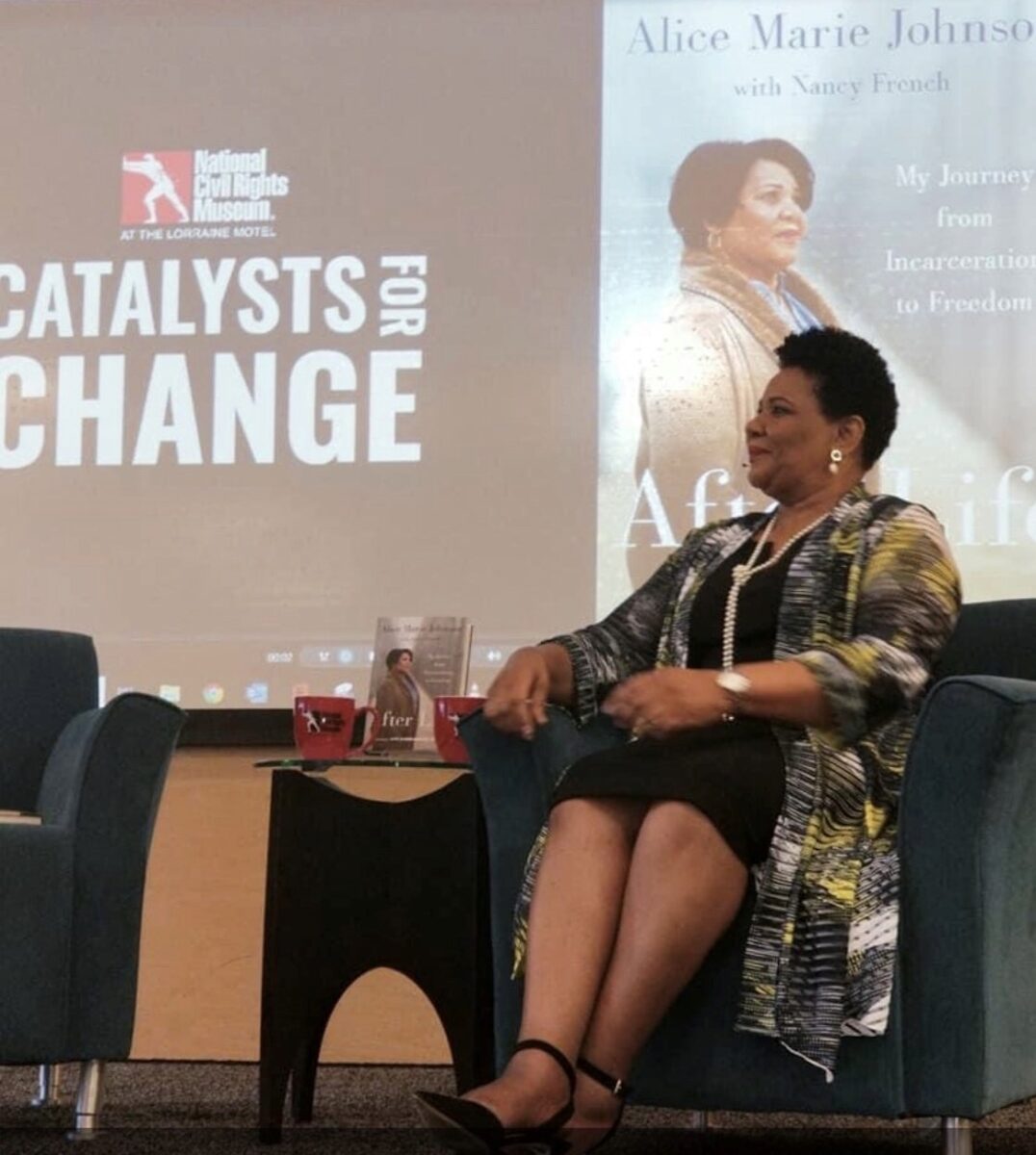
My comforting Lord,
True hope comes from You. False hope comes from many sources, including persuasive advertising. Please give me discernment as I seek to walk along a hopeful path. Many voices call out to me: “This is the way!” Protect me from being deceived while I’m trying to process all the information clamoring for my attention. I’ve found that the best way to break free from information overload is to refocus my thoughts on You. As I rest in Your peaceful Presence, true hope grows within me.
In Your soothing Name, Jesus,
Amen
Narrator: To stay up to date with Alice Marie Johnson, follow her on social media. Stay tuned to Christina Zorich’s story after a brief message.
Find Peace in Jesus Calling
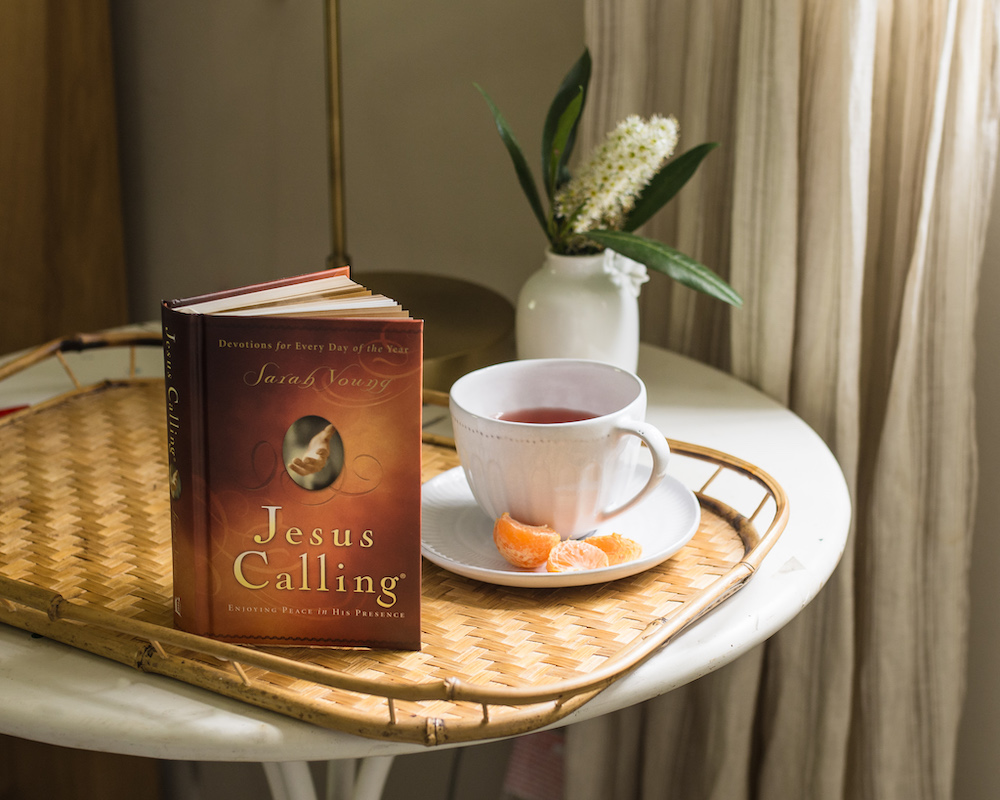
For almost 20 years, Jesus Calling has helped millions of people around the world spend time in the presence of the Savior. With 365 devotions (one for each day) this compact and affordable hardcover book is so beloved, people usually buy multiple copies. It’s often a life-changing gift for anyone going through a difficult time. In Jesus Calling, the New York Times bestselling author Sarah Young delivers comfort and encouragement along with scripture references to deepen your connection to God. Discover how God’s messages of peace and hope can impact your life. Look for Jesus Calling wherever you buy books.
Our next guest is filmmaker, actress, and teacher, Christina Zorich. Christina gives us an inside look at her new documentary called The New Abolitionists, where she followed four anti-trafficking groups in Southeast Asia.
Christina Zorich: Hi, everybody. I am Christina Zorich. I’m a filmmaker. I just completed a seven-year journey of making a documentary called The New Abolitionists, but I’m also an actress and an acting teacher.
I was born in New York City, born to Olympia Dukakis and Louis Zorich. I’m the firstborn of three kids. I have two younger brothers, and my parents were working actors at that time, and were very connected to the theatrical community in New York City where I was born.
I had a kind of incredible childhood. It was a safe neighborhood, everybody left their doors open. There were always actors, directors, writers, composers, and set designers in the house. Everybody was kind of a small family, so we’re always at some celebration.
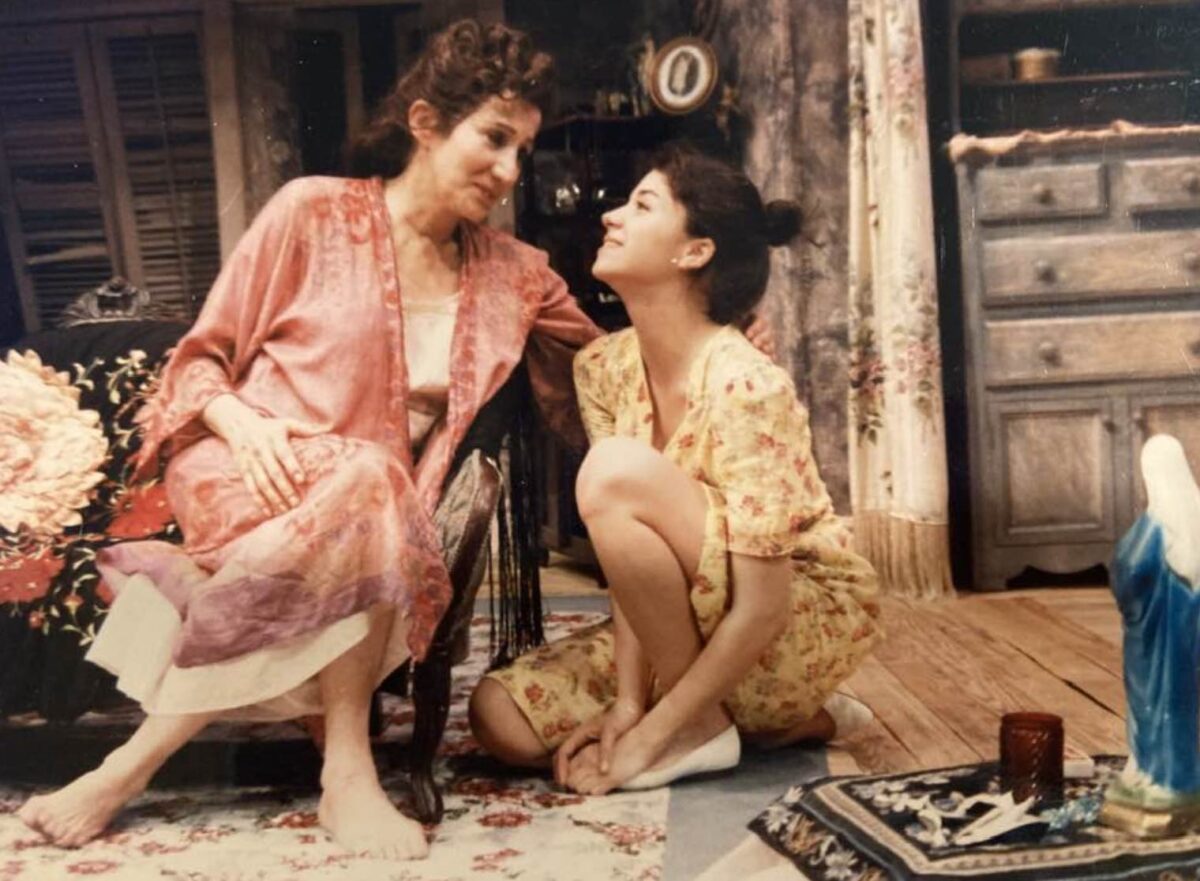
I actually got cast in, I think it was their first production of the whole theater, and it was the play Our Town, and I played George’s sister and I had this beautiful monologue on a ladder about somebody who had sent a letter with this long description about where he was located. And it ended up mentioning the mind of God or something that got closer and closer to the divine element on the letter on the stamp. And I remember speaking this monologue, and it was like the first moment where I kind of knew everywhere in my whole being that I was supposed to be an actor. But I also feel like I realized my sense as a Christian without understanding it at that point, so I always had a feeling of the value and the importance of the arts and elevating the human spirit and addressing huge issues in our psyche. I really was given a real foundation for that, but from both my parents, who really are very deeply, profoundly intelligent but also big believers in the capacity of the arts to expand and grow and develop us as human beings.
The Abolitionists
I followed four anti-trafficking groups in Southeast Asia who rescue, rehabilitate, prosecute, and prevent human sex trafficking. I was teaching acting in Los Angeles, and one of my students in Hollywood had a Christmas party in 2012. And I went with some friends and met an anti-trafficker named Erica Greve, who had started an NGO called Unlikely Heroes, and she was building homes for rescued women and children. She had been a nurse in some hospital, and young women and children who had been trafficked came into the hospital. And the staff at that point did have no kind of real system to help rehabilitate them and heal this insane level of trauma these young people had experienced. And that’s when she got the idea to start these homes.
So she told me a story, one of the homes they were thinking of starting at the time was in the Philippines, and they had gotten an edict or some kind of written document giving them permission to go into an underground brothel in the Philippines. She got this permission from officials, quote unquote, and at that time, I didn’t quite understand what she was saying to me, because this is the first time I had really heard a horror story about all this. And they gave her armed guards and they went into this underground brothel. She ended up rescuing, I believe it was about ten to fourteen year old girls. She looked at me and she said, “Christina, we would have taken more, but they were too broken to come with us.” And that just rocked me. She gave me some details of the conditions they were living in, which were horrific. But then she just looked at me and she said, “Christina, they knew.” And I didn’t understand how to process that information at the time.
I was kind of in denial, I think. And I think that’s one of the issues around this, is it’s hard for us to believe in our conscious mind that this is actually happening because it’s horrific and it brings up really very emotional, upsetting feelings in all of us, which is unfortunately part of the process of making this documentary, is having to give myself the space to have those experiences and not take action when I was like that. Because you have to process through information, and to be able to think of what’s the most productive and important, and also you know, find out from God, “What is it that You want me to do with this information?”
I said, “What can I do? What can I do? I want to help what you’re doing.” I didn’t think of myself as a filmmaker. I said, “Listen, I know some camera people, I know some directors.” I mean, basically at that point, most of the people I knew were in the entertainment industry. “I can get meetings with you. They can help you get fundraising materials.” And she said, “That would be great.” She took a series of meetings one day and everybody wanted to get paid, which is completely reasonable. But she came back to me and said, “Christina, you know, all the money we make has to go to the children and the women.” I said, “I totally understand. I’m so sorry.” And that’s when I got the idea to make a documentary. That’s when I got the idea that it had to be an act of service.
Simply Following God’s Plan
I think it was three years later, I sold some property two years later, and I was going to produce another project. And I was in prayer with a prayer partner, and she just said to me, “I don’t think this is what you’re supposed to do.” And I spent a lot of time really, really praying about it, and I agreed with her. And that’s when I started the journey of self-producing the documentary, directing it. I was one of the editors on it. I helped shoot it, produced it. What’s interesting is, as opposed to teaching or acting even, I had no ego attachment to this. So going on the journey was actually in some ways so much more simpler because I had to be so dependent on God. I had to be so dependent on just getting every little opportunity, appreciating it, and if I made a mistake, I had to learn from the lesson.
“Going on the journey [following anti-traffickers in Asia] was actually in some ways so simple, because I had to be so dependent on God. I had to be so dependent on just getting every little opportunity, appreciating it, and if I made a mistake, I had to learn from the lesson.” – Christina Zorich
In some ways, it was a lesson for me in how to function in all the other areas of my life, because I realized the simplicity of the experience really helped guide me and made my life just simpler in a way. Because when you’re doing something for the first time, that wide-eyed openness makes you appreciate things and value things. And you know, the experience and the journey changed me in many ways.
“I realized the simplicity of the experience really helped guide me and made my life just simpler in a way. Because when you’re doing something for the first time, that wide-eyed openness makes you appreciate things and value things. And the experience and the journey changed me in many ways.” – Christina Zorich
Helping the Helpless
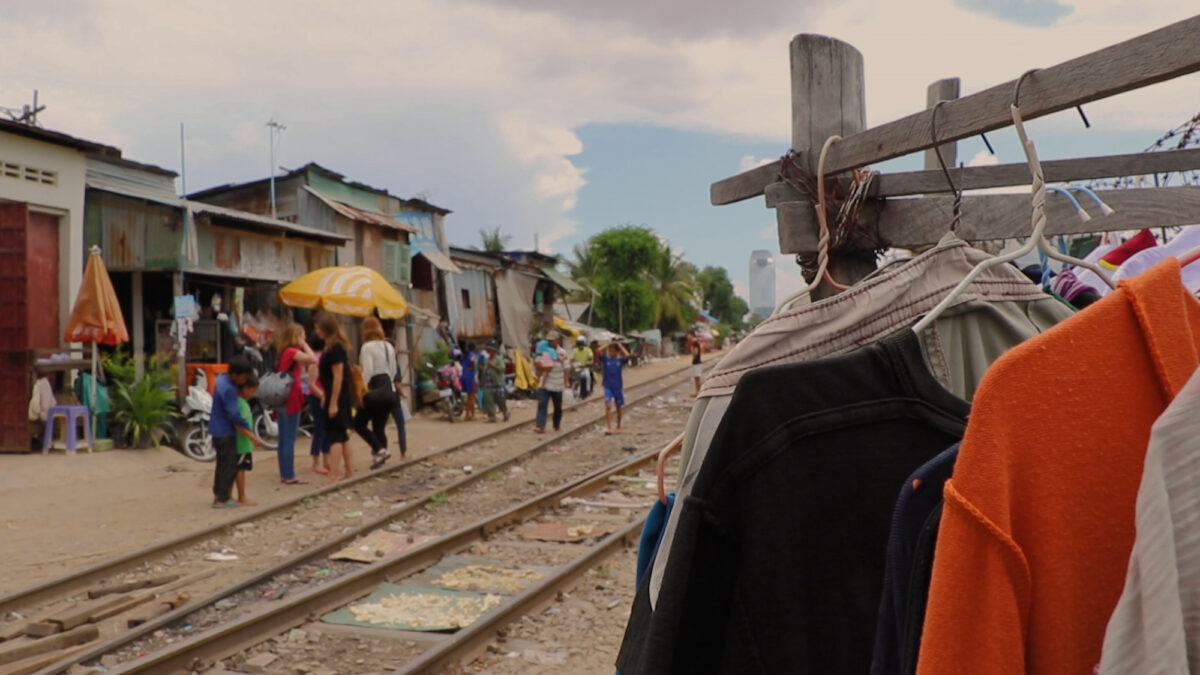
There’s a bunch of push factors that lead people into trafficking or children into trafficking. A lot of these people have been trafficked, there’s been individual trauma in the family. A father had a work accident and was lame and so the family is scrapping together resources to survive, or there’s addiction in the family, and there’s abuse: psychological, emotional, physical. A lot of these girls have been sexually abused. Also corruption in the government when the system is not working properly or there’s corruption in a family system or in a region. Poverty is one of the main reasons that people get into it.
Most of these individuals have either been betrayed or tricked or exploited or abused or bamboozled or been pressured. There’s all kinds of different ways that they end up this way. I think it is really important for people to understand there is a criminal industry and it’s working internationally. There are cartels and then there are local gangs or mafia working with them or privately doing this, but what’s important to know is there’s also freelancers. And it means that there are people who do this apart from a criminal industry. I have not met one person who doesn’t agree with the value and ethics of stopping this criminal industry. It’s the top three criminal industries globally.
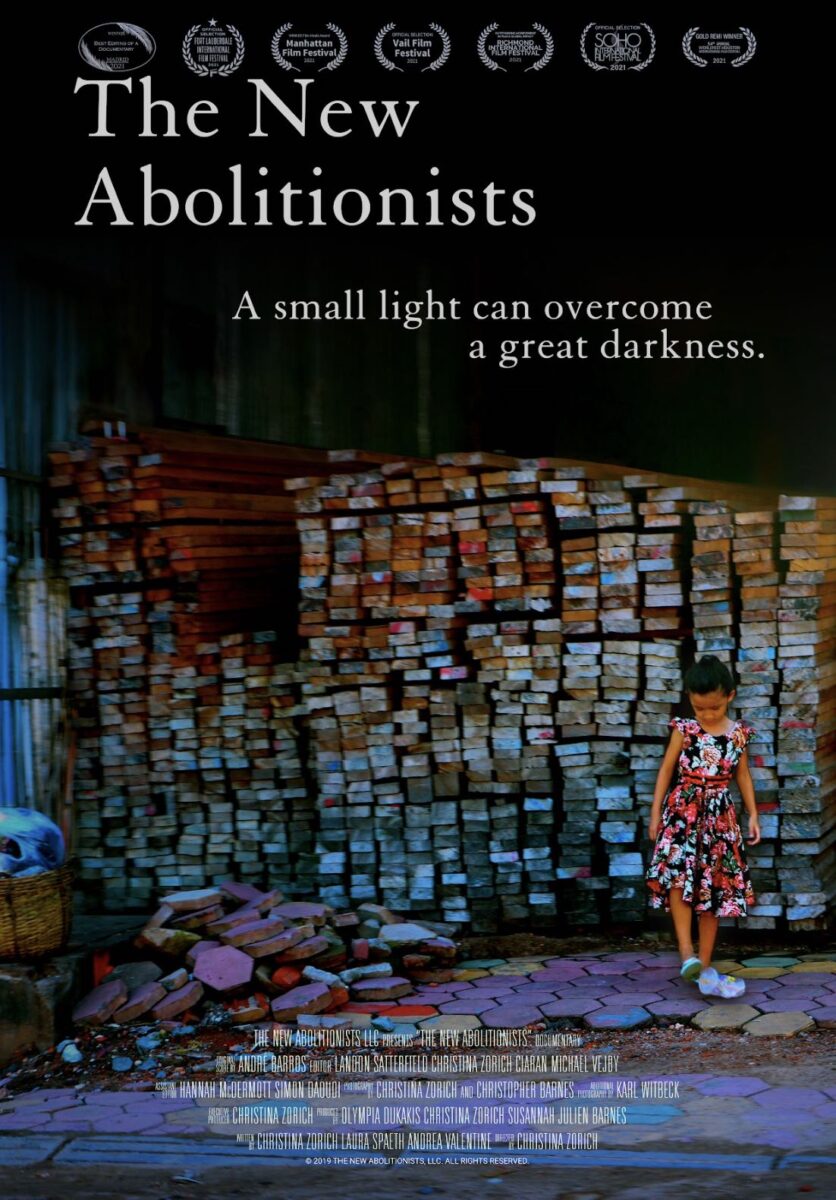
The title of the film is called The New Abolitionists. I made the title of the film that title, because literally, it felt right. It felt like the work that these people were doing.
Most of these people have given up their lives, their dreams, to change their life, to transform their life, to be able to do this work. And they are not without struggles and difficulties, but I just found it so moving and such a kind of beautiful representation of this faith walk, very moving work that they were doing. And it inspired me. And so you look at the abolitionists of old who are fighting slavery, and this is slavery. I mean, sometimes I get into discussions about sex trafficking. People are like, “So you made this documentary about prostitution.” I have to say, over and over, “No, it’s not about prostitution. It’s about human sex trafficking.” And the distinction—at one point, I almost had the definition at the beginning of the movie. When people are human sex trafficked or trafficked, they are placed in a situation against their will. They are forced, they are manipulated, they are lied to. They are threatened. They are intimidated. You know, they are abused, they are exploited.
I think it changes our understanding of how to deal with the problem, and deal with prostitution, because these are basically victims. They don’t see themselves as victims, a lot of them, which is kind of incredible. They see themselves as surviving it, but they have been victimized and groomed into these circumstances.
The bottom line is I really encourage people to go on the website for the movie as well as watch the movie. It’s really important to get educated about what this criminal industry as well as this social justice issue looks like.
At one section of the film, they talk about a man who was a very successful businessman and had made a mission trip to visit one of these anti-trafficking groups featured in the film. And it was laid on his heart to start a jeans business and hire the women and children who have been trafficked in their own country, to help create a business so that they could get some vocational skills, because they have to address the vocational aspects and the financial aspects of these family dynamics and these young children so that they take them out of these situations, but they give them resources to survive and to live and to thrive and heal.
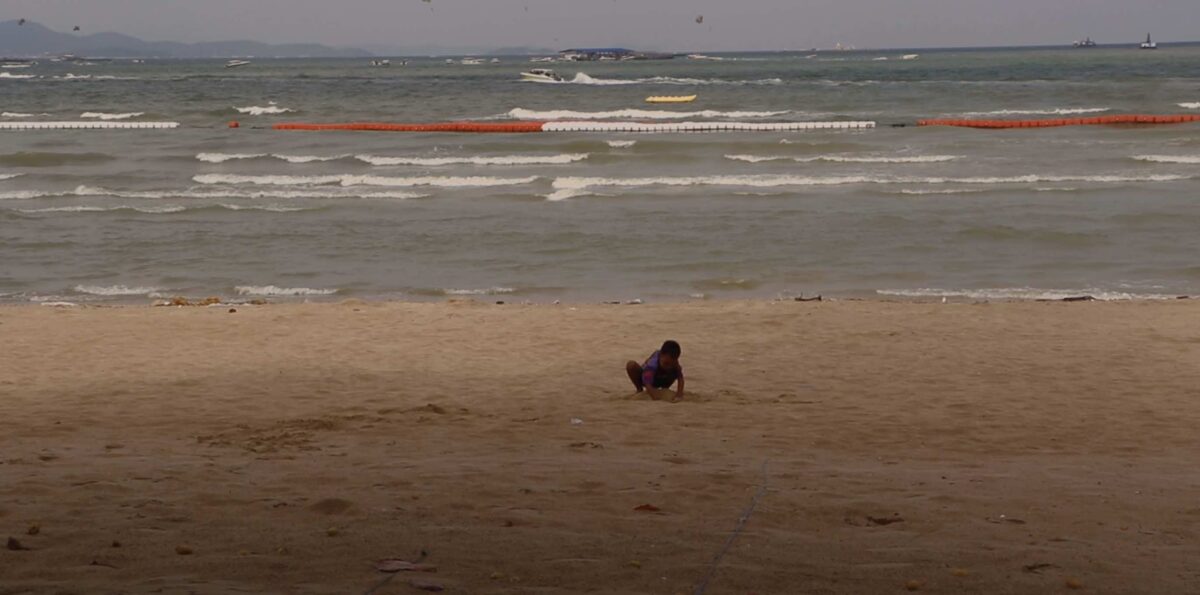
There’s a bunch of different organizations I’ve met along the way that I really can vet and stand by that are doing wonderful work. One of them is the Polaris Project which collects all the phone calls that come in and kind of creates data about the businesses that front for trafficking, criminal industries. Extreme Love Ministries and Tamar’s Center, they’re working in countries that they have to be very smart about how they introduce faith. They work it into the rehabilitation through their value system, but they have to also respect and honor the culture. So I think they’ve all done that beautifully. So I would first and foremost encourage people to pray about this issue, your position in it, your place in it, research different organizations.
Education is the key here. I know it’s hard. I know it’s a difficult subject matter, but the only way we’re going to vanquish this issue is through education and getting active in whatever way you feel led to do so.
Jesus Listens, April 11th:
Dearest Jesus,
I believe in You—even though I do not see You with my eyes. I know You are far more real than the things I can see all around me. So when I believe in You, I’m trusting in rock-solid Reality! No matter what my circumstances may be, You are the indestructible Rock on which I stand. I’m thankful I can always take refuge in You because I belong to You forever.
In Your Name above all names,
Amen
I would just like to pray over the audience real quick.
Father God,
I come before you. I thank you and praise you and adore you. And I thank you for everyone who’s listening to this podcast. I ask that you make them like the real children of Abraham, led by your Holy Spirit. God, guide them, direct them, send dreams, visions, convictions.
Meet them where they are. Make real to them, known to them the plans you have for them, Father. The purposes you have for them, since the foundation of the earth, for how you want to use them with this issue, this social justice issue. Be it in terms of education or being a more active participant in ending trafficking, be making them a voice. Perhaps it’ll be part of their prayers to intercede on behalf of this issue. Maybe you’ll have a grander activity for them,
God. But whatever it is, Father God, I lift them all up for you, God. And I pray that you make it known in the mighty name of the living Christ, what their heart is in this grand scheme, this grand event, and this narrative that we have running through our global society right now.
In Jesus name,
Amen
Narrator: To learn more about Christina Zorich, watch her documentary, The New Abolitionists, and follow her on social media.
If you’d like to hear more stories about how God makes all things beautiful in His time, check out our interview with Aaron Tippin.
Next week: Jimi Cravity
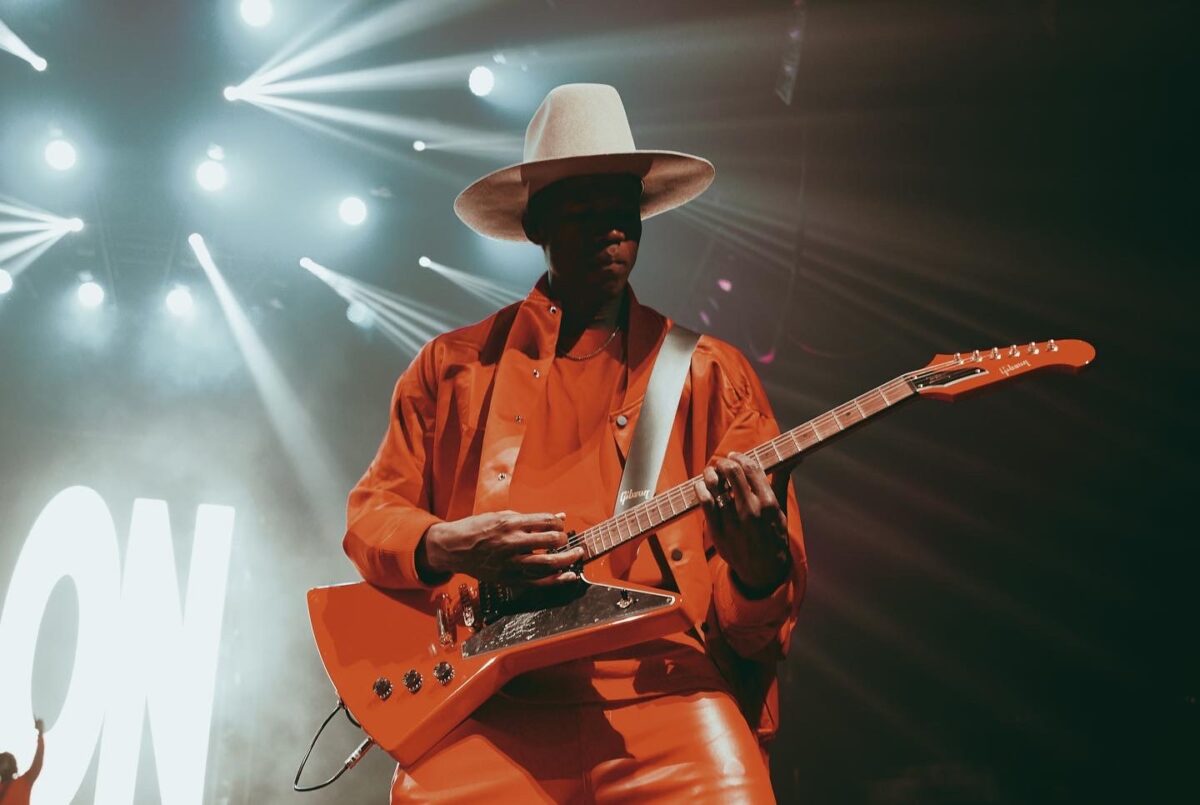
Next time on the Jesus Calling Podcast, we are joined by singer and songwriter Jimi Cravity. He shares how even in the midst of experiencing grief, God was always near, which has become increasingly evident to him as he worships the Lord through his music.
Jimi Cravity: I feel like sometimes when we go through trials, when we go through hard times, challenging, difficult times, we feel like God is on the other side of the earth. But the Bible says that God is near to those who are brokenhearted.

